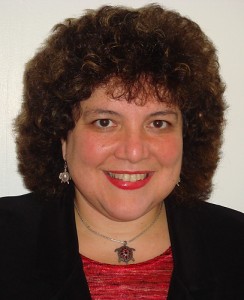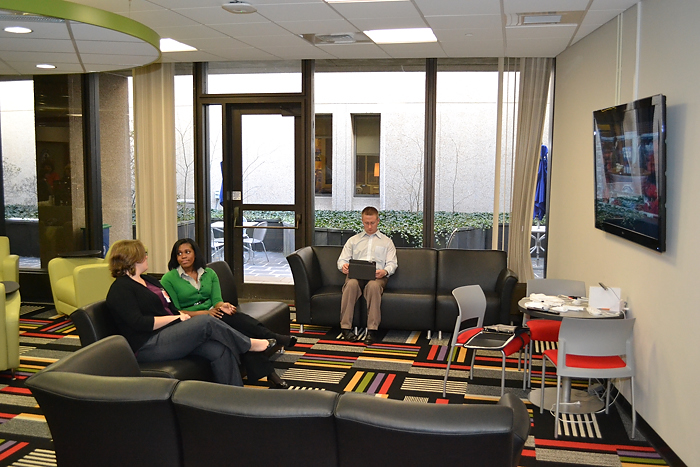After nearly two years of reflection and intense progress, leaders with the UConn School of Medicine say they are ready for the upcoming visit by the Liaison Committee on Medical Education (LCME).
“Thanks to the work of so many people, we’ve undergone a focused and highly productive journey. We’re prepared for the next steps,” says Dr. Suzanne Rose, senior associate dean for education.
A Candid Assessment
The LCME is the accrediting body for all North American medical schools and has established a set of standards for medical school accreditation. During regularly scheduled site visits, an LCME evaluation team assesses each school in terms of compliance with these standards and later issues its report.
The LCME’s 2010 report had high praise for the UConn School of Medicine in many respects, including the faculty’s strong commitment to education, the quality of the student body, and graduates’ excellent performance on national licensing exams. But the report also indicated 15 items (out of more than 100 standards) that needed corrective action. These were in the areas of curriculum oversight, student support services, institutional support and financial resources. “This gave us an opportunity for reflection and improvement of an already great school,” Rose notes.
Immediate Action

School leadership, in cooperation with LCME representatives, immediately set to work developing an action plan for addressing each issue, and LCME formally approved the plan in February 2011. Many of the initial efforts were led by Dr. Marja Hurley, associate dean and director of the Office of Health Career Opportunity Programs, who served as interim senior associate dean for education until Rose’s arrival in June of 2011.
“From her first day on campus, Dr. Rose made our school’s response to the LCME citations her primary focus, engaging the talents and energy of the entire Health Center community to achieve excellent results,” says Dr. Bruce T. Liang, interim dean of the medical school. “She is a dynamic professional and exactly who we needed to see this initiative to its fruition.”
One of Rose’s priorities was to make the LCME process transparent. All information was posted online, student and faculty “town hall meetings” were organized, each class was asked to elect a representative to liaison with the faculty and administration about educational and curricular issues, and an open-door policy for students was fostered.
“It is important to share information freely in order to promote a spirit of community and rally everyone around our common goal of creating the best possible learning environment,” Rose says.
Rose also organized a faculty retreat and, in December, brought in faculty from other medical schools to conduct “mock” site visits. A second mock site visit will take place on Jan. 30 and 31. On February 17, Rose and her colleagues will hold an LCME Fair in the lobby of the academic building. It will feature educational displays about each standard the school is addressing, a quiz about what has been accomplished, and a raffle for those who answer the quiz questions correctly.
“This is a serious matter, but you have to have a little fun with it,” she says.
Changes to Date
Some changes were implemented immediately; others, by their nature, took several months to complete. While the changes will serve to address issues cited by LCME, they will also make the school a stronger institution for years to come.
On the academic side:
- Chair and associate dean positions that had been vacant have been filled.
- A robust new Faculty Development Program has been launched.
- New positions have been created to enhance basic science and clinical medicine education.
- A leadership team of faculty has been formed to monitor all aspects of undergraduate medical education and promote integration among disciplines.
- The overall governance structure has been streamlined.
- A continuous improvement process for courses is in place.
- And the school has launched a curriculum mapping project—an initiative that forms the basis for future curricular innovations that will place the School of Medicine at the national forefront of medical education.
The student experience has also been the focus of many changes. Among the most dramatic improvements include:
- Student financial and debt management seminars and resources are now in place.
- A student advisory group has been established for the first and second year students with small and large group activities.
- The bookstore has been expanded and is in a new and larger location.
- A spacious new student lounge on the first floor of the academic building has been created.

The lounge features a study area, games, a big-screen television and space for just snacking or relaxing. “Students have greatly benefited from this,” says second-year student Christopher Steele. “Before, it was very small and there wasn’t much to it. There’s enough room now so that it feels like home.”
The LCME task force has also taken steps to improve educational experiences students have off campus. Affiliation agreements with area hospitals have been revised to comply with LCME standards, assistant deans have been appointed to serve as students’ contacts at each hospital, and steps have been taken to ensure students have comparable experiences at each site.
Documenting Success
In mid-January, the school submitted a comprehensive briefing book to LCME demonstrating how each citation has been addressed. LCME will review the document and return to UConn in February for a limited, three-day site visit.
“The LCME process is really about continuous quality improvement,” Rose explains. “This benefits the overall environment, the faculty, the students and, ultimately, the patients and communities they will serve, which is the most important of all.”
Follow the UConn Health Center on Facebook, Twitter and YouTube.



